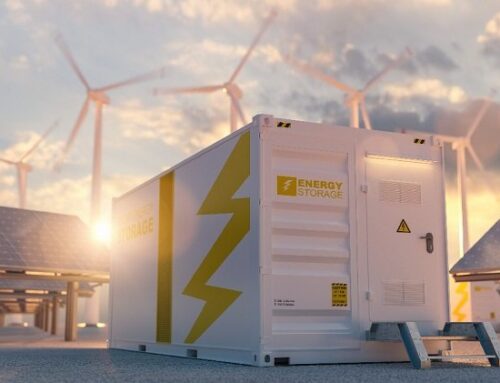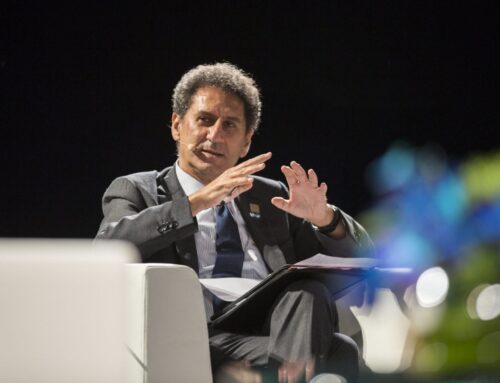Keeping promises on renewables, energy efficiency and methane ‘would avoid nearly 1C of gl
November 19, 2025
Sticking to three key climate promises – on renewables, energy efficiency and methane – would avoid nearly 1C of global heating and give the world hope of avoiding climate breakdown, analysis published at the Cop30 climate summit suggests.
Governments have already agreed to triple the amount of renewable energy generated by 2030, double global energy efficiency by then, and make substantial cuts to methane emissions.
If they follow through on these promises – still a big if, even though countries are meeting for climate crisis talks in Brazil this week – it would be a “gamechanger”, shaving 0.9C from projected temperature rises this century, according to the Climate Action Tracker coalition.
Achieving all of these measures, among G20 countries alone, would reduce global greenhouse gas emissions by 18bn tonnes in 2035 – enough to cut the rate of global heating by a third in the next decade, and halve it by 2040.
Bill Hare, chief executive of Climate Analytics, one of the organisations behind the report, said: “If [governments] achieve this by 2035, it would be a gamechanger, quickly slowing the rate of warming in the next decade and lowering global warming this century from 2.6C to about 1.7C.”
This is close to the target of limiting global heating to 1.5C above preindustrial levels that is at the core of the 2015 Paris climate agreement. Hare said: “The [findings] are really quite stunning. It would be the first big improvement, and a major step forward.”
Stopping deforestation is another climate pledge that has yet to be fulfilled. This would also be essential to avoid further reducing the world’s “carbon sinks”, which absorb carbon dioxide from the atmosphere and balance out the remaining greenhouse gas emissions from fossil fuels.
Hare said these targets had already been negotiated, and now just needed to be put into practice: “The whole emphasis of this Cop is implementation so I would say the parties need to get on and do it.”
Pledges to triple renewables and double energy efficiency were made at Cop28 in Dubai in 2023. Since then, global investment in renewables has continued to rise, to more than $2tn (£1.5tn) last year, according to the International Energy Agency, which was more than twice the investment into fossil fuels.
China’s renewable energy sector has surged ahead, and India reached its goals five years early, with huge investment in solar and wind energy.
Cutting methane looks to be much harder, however. More than 160 governments are nominally signed up to the global methane pledge, and are supposed to cut their emissions of the gas by 30% by 2030, compared with 2020 levels.
But methane emissions have continued to rise, and many countries have been found to have underreported their output. Even persuading countries to capture the methane from their oil and gas operations – or close abandoned coalmines and oil wells to stop methane escaping – looks unlikely to happen, with Russia, China and the US three of the biggest culprits.
Hare said: “Governments need to start right now [on all the promises]. The real question is political: can governments bring themselves to resist pressure from the fossil fuel industry, and will richer countries agree to accelerate financial support for the countries that need it?”
At the Cop30 summit in Belém, governments are supposed to come up with a response to the fact that their current emissions-cutting plans would allow temperatures to rise to 2.5C, instead of the 1.5C they have committed to.
On Wednesday, countries were expecting a new draft text from the Brazilian presidency that would address many of these issues – and the question of a “transition away from fossil fuels”, which was also promised at Cop28.
Some countries are hoping to begin the process of drawing up a roadmap for the fossil fuel phaseout, but they are likely to face stiff opposition from petrostates and their allies.
Niklas Höehne from the NewClimate Institute said: “The changes in the energy system would be so significant from tripling renewables, doubling efficiency, reducing methane, that they would actually trigger the transition away from fossil fuels.
“If you look at the numbers, it shows really significant reductions in fossil fuel use by the mid-2030s from these measures. So that would also go a long way towards implementing the agreement done in the first world stock take to transition away from fossil fuels.”
Search
RECENT PRESS RELEASES
Related Post




